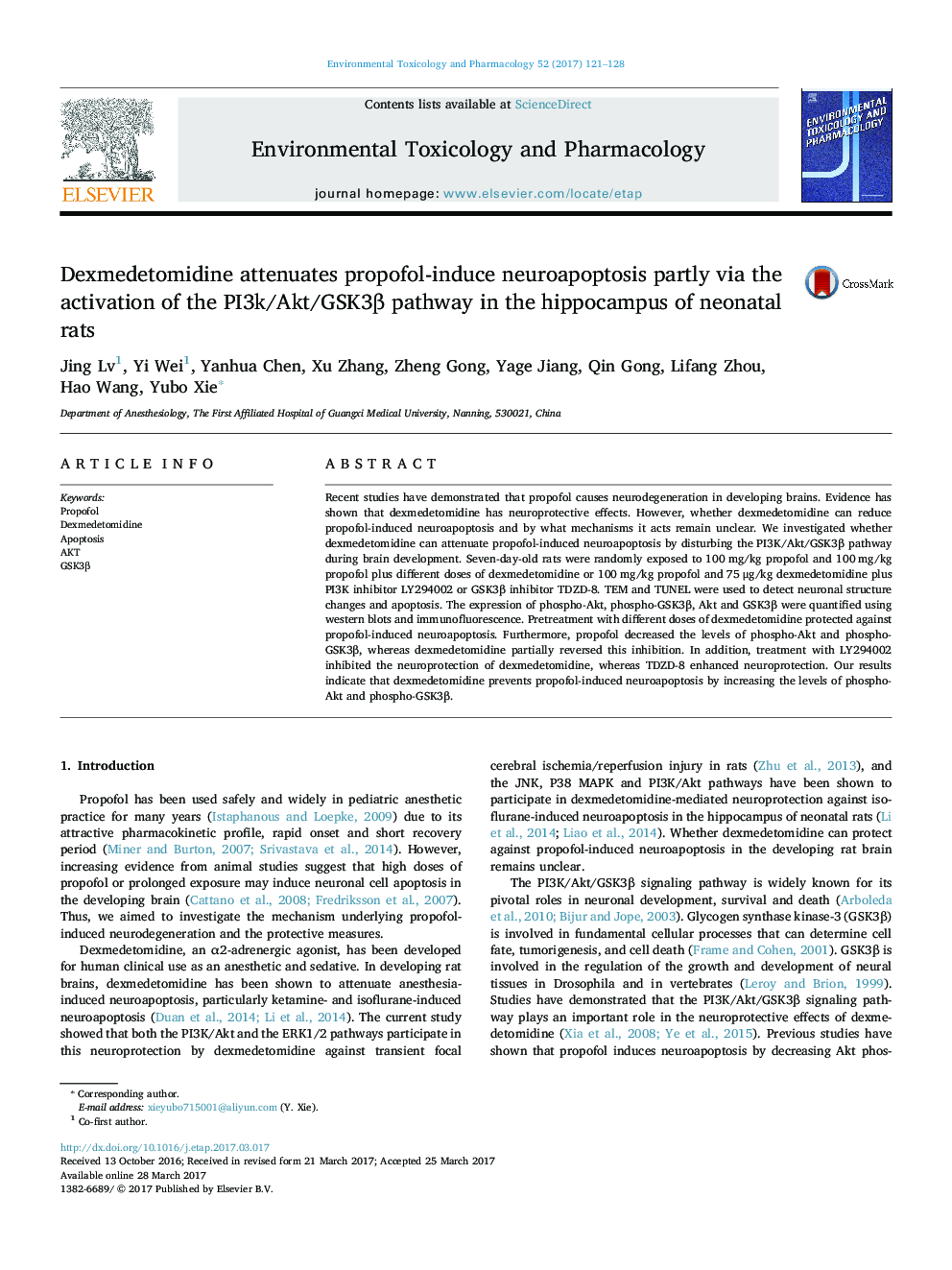| Article ID | Journal | Published Year | Pages | File Type |
|---|---|---|---|---|
| 5559673 | Environmental Toxicology and Pharmacology | 2017 | 8 Pages |
â¢Dexmedetomidine attenuates propofol-induced neuroapoptosis.â¢PI3K/Akt/GSK3β pathway contributes to mechanisms of neuroprotection.â¢PI3K inhibitor attenuates the neuroprotective effect of dexmedetomidine.â¢GSK3β inhibitor enhances the neuroprotective effect of dexmedetomidine.â¢PI3K/Akt/GSK3β pathway is a potential therapeutic target for nerve injury.
Recent studies have demonstrated that propofol causes neurodegeneration in developing brains. Evidence has shown that dexmedetomidine has neuroprotective effects. However, whether dexmedetomidine can reduce propofol-induced neuroapoptosis and by what mechanisms it acts remain unclear. We investigated whether dexmedetomidine can attenuate propofol-induced neuroapoptosis by disturbing the PI3K/Akt/GSK3β pathway during brain development. Seven-day-old rats were randomly exposed to 100 mg/kg propofol and 100 mg/kg propofol plus different doses of dexmedetomidine or 100 mg/kg propofol and 75 μg/kg dexmedetomidine plus PI3K inhibitor LY294002 or GSK3β inhibitor TDZD-8. TEM and TUNEL were used to detect neuronal structure changes and apoptosis. The expression of phospho-Akt, phospho-GSK3β, Akt and GSK3β were quantified using western blots and immunofluorescence. Pretreatment with different doses of dexmedetomidine protected against propofol-induced neuroapoptosis. Furthermore, propofol decreased the levels of phospho-Akt and phospho-GSK3β, whereas dexmedetomidine partially reversed this inhibition. In addition, treatment with LY294002 inhibited the neuroprotection of dexmedetomidine, whereas TDZD-8 enhanced neuroprotection. Our results indicate that dexmedetomidine prevents propofol-induced neuroapoptosis by increasing the levels of phospho-Akt and phospho-GSK3β.
